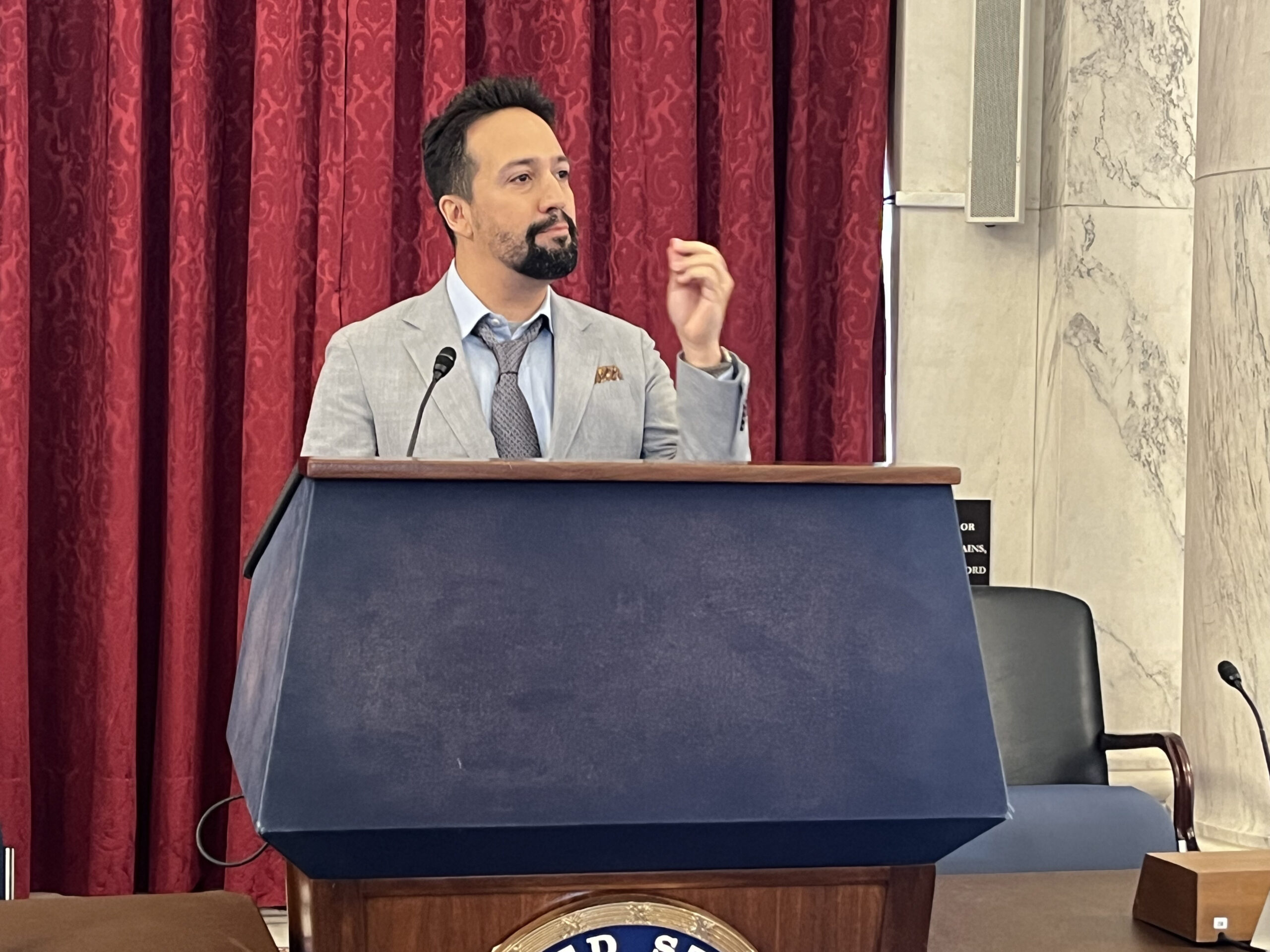WASHINGTON (WASHINGTON POST) – It is practically unheard of for America’s nonprofit theatres to get a serious listen on Capitol Hill – with high-ranking senators in attendance, no less.
But in a sign of how severely imperiled the stages remain after the pandemic, theatre leaders in the US got the audience they sought Thursday, when they requested USD500 million in annual federal aid for the next five years – a total of USD2.5 billion in aid.
Helping the cause, certainly, was that the representatives of theatres from across the US were accompanied by Lin-Manuel Miranda and Phylicia Rashad.
Both made impassioned pleas for an industry that is seeing a reported two to three theatre companies ending operations each month, with predictions of the numbers rising. And the impact of continued hits to the country’s creative economy, they warned, will be devastating.

“The person who [will have written] your favorite musical is working on it right now in a small theatre somewhere in this country,” Miranda, creator of the mega stage hit “Hamilton,” said during the briefing in the Russell Senate Office Building by the Professional Non-Profit Theatre Coalition. “And those small theatres are closing, and those small theaters are in crisis.”
And not just the small theatres. The artistic heads of some of the largest nonprofits in the US – Oskar Eustis from New York’s Public Theatre, Hana Sharif from DC’s Arena Stage, Snehal Desai from Los Angeles’s Centre Theatre Group – all spoke of the losses being incurred because of rising costs and audience attrition.
They pressed upon the dozens of Senate staffers who filled the Kennedy Caucus Room that harm to theatres also meant harm to local businesses surviving on the customers brought to their neighbourhoods by plays and musicals.
“We highlight the economic impact of our theatres around the country: Large, small or medium-sized, [they] are economic drivers for businesses employing local people,” said Danny Feldman, producing artistic director of the Pasadena Playhouse.
Desai reported that California alone had lost USD1 billion in tax revenue from the performing arts decline since 2019. Other speakers noted that with decreases in arts funding for public schools, regional theatres have doubled down on education programmes that are also now jeopardised by the financial crisis.
The lagging recovery of the theatre industry, with 20 to 30 per cent drops in attendance estimated since the widespread pandemic shutdowns in March 2020, led to the stepped-up campaign for aid by the coalition.
The group, with 144 member organisations, was organised in 2020 by Nataki Garrett, then artistic director of the hard-hit Oregon Shakespeare Festival.
She was soon joined by Maria Goyanes, artistic director at DC’s Woolly Mammoth Theatre, who helped assemble Thursday’s briefing with the coalition’s lobbyists at the law firm Arnold & Porter.
Negotiations over the looming government shutdown complicated the briefing’s timing. Still, three senators attended and spoke in the Kennedy Caucus Room.
They included Sen Amy Klobuchar (D-Minn), who was instrumental in creating 2020’s federally funded, USD15 billion Shuttered Venue Operators Grant program, the largest relief effort for the performing arts in US history.
“That’s my goal, to continue to stand by you and help you in every way,” said Klobuchar, who was followed from the podium with pledges of support from Sens Peter Welch (D-Vt.) and Ron Wyden (D-Ore), the latter the chairman of the Senate Finance Committee.
The theatre leaders attempted to impress upon Congress that the legislation authorizing USD500 million a year – under a proposed Supporting Theatre and Generating Economy Activity (STAGE) Act – was a comparatively small price to pay for keeping theatre alive.
Eustis, artistic director at the Public Theatre, which has had to cut back its programming this season, said the requested funding level represented 20 per cent of the collective operating budgets of every nonprofit theatre in the country.
After the congressional briefing, Miranda and theatre leaders met with Cabinet members at the White House for further talks about the crisis.
Noting that the Depression-era Works Progress Administration (WPA) and other federal programmes had helped ensure the arts’ continued health, Eustis declared that 2023 offered another critical turning point.
“We believe this is another historical moment where we can change the relationship of the federal government to the American theater,” he said.
Rashad spoke more personally about the impact theatre can have, reminding the room that theatre is principally “communication from the heart.”
Her implicit message was that theatre binds one heart to another, in a time when the country needs avenues for healing. “When we communicate from the heart, other hearts are touched,” she said. “This is why theatre creates community.”
Klobuchar observed that the Shuttered Venue legislation was unusual because the amount of relief in the bill actually increased as the negotiations in Congress unfolded. It remains to be seen how receptive her colleagues will be to another monetary rescue.
Asked after the briefing about those prospects, the senator was philosophical. Pointing out that when the rescue for the arts during the pandemic was first proposed, “no one thought it was going to happen,” she said, adding, “As Lin-Manuel said, it’s not a moment, it’s a movement.”







